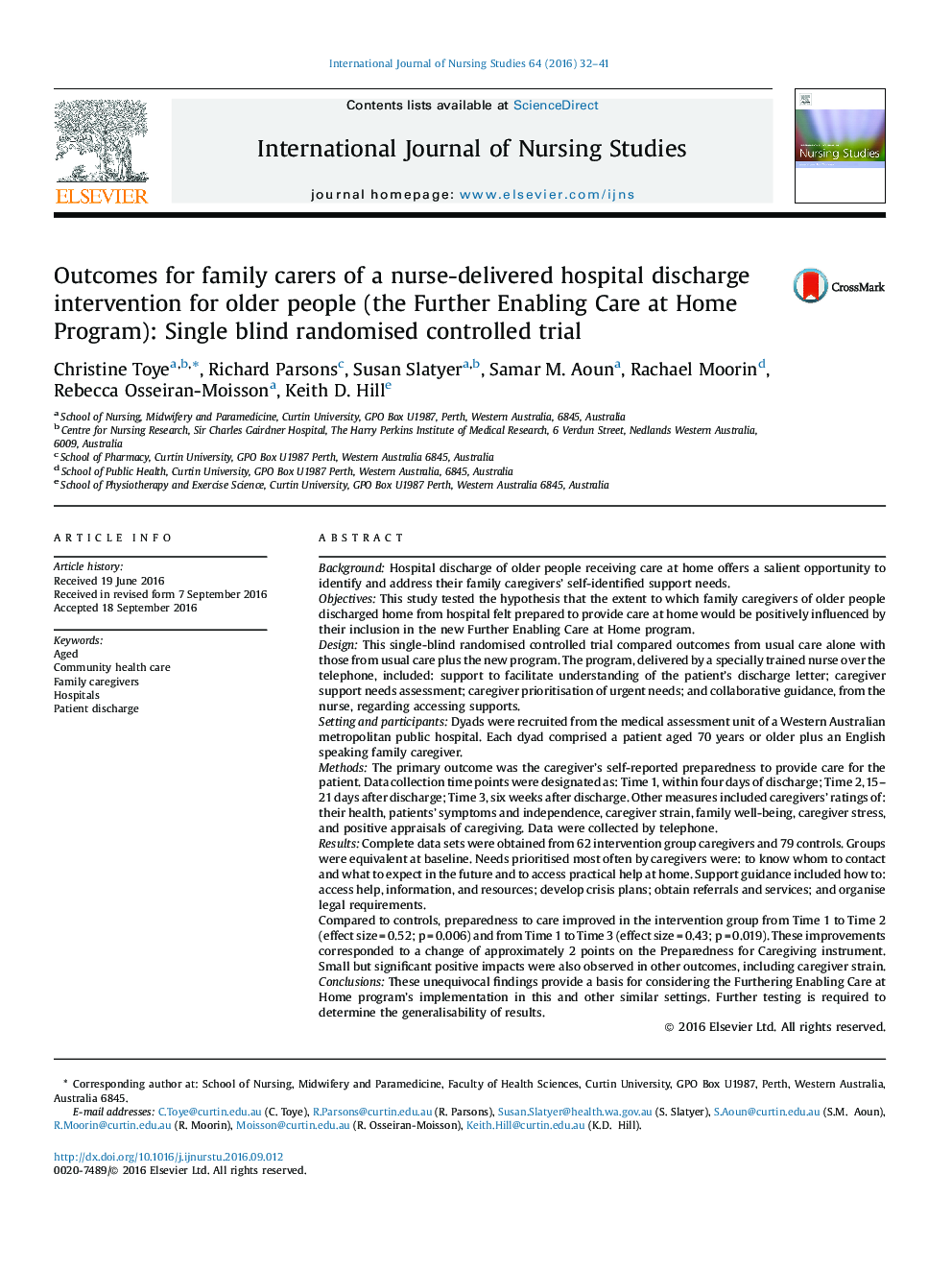| کد مقاله | کد نشریه | سال انتشار | مقاله انگلیسی | نسخه تمام متن |
|---|---|---|---|---|
| 5121039 | 1486505 | 2016 | 10 صفحه PDF | دانلود رایگان |
BackgroundHospital discharge of older people receiving care at home offers a salient opportunity to identify and address their family caregivers' self-identified support needs.ObjectivesThis study tested the hypothesis that the extent to which family caregivers of older people discharged home from hospital felt prepared to provide care at home would be positively influenced by their inclusion in the new Further Enabling Care at Home program.DesignThis single-blind randomised controlled trial compared outcomes from usual care alone with those from usual care plus the new program. The program, delivered by a specially trained nurse over the telephone, included: support to facilitate understanding of the patient's discharge letter; caregiver support needs assessment; caregiver prioritisation of urgent needs; and collaborative guidance, from the nurse, regarding accessing supports.Setting and participantsDyads were recruited from the medical assessment unit of a Western Australian metropolitan public hospital. Each dyad comprised a patient aged 70 years or older plus an English speaking family caregiver.MethodsThe primary outcome was the caregiver's self-reported preparedness to provide care for the patient. Data collection time points were designated as: Time 1, within four days of discharge; Time 2, 15-21 days after discharge; Time 3, six weeks after discharge. Other measures included caregivers' ratings of: their health, patients' symptoms and independence, caregiver strain, family well-being, caregiver stress, and positive appraisals of caregiving. Data were collected by telephone.ResultsComplete data sets were obtained from 62 intervention group caregivers and 79 controls. Groups were equivalent at baseline. Needs prioritised most often by caregivers were: to know whom to contact and what to expect in the future and to access practical help at home. Support guidance included how to: access help, information, and resources; develop crisis plans; obtain referrals and services; and organise legal requirements.Compared to controls, preparedness to care improved in the intervention group from Time 1 to Time 2 (effect size = 0.52; p = 0.006) and from Time 1 to Time 3 (effect size = 0.43; p = 0.019). These improvements corresponded to a change of approximately 2 points on the Preparedness for Caregiving instrument. Small but significant positive impacts were also observed in other outcomes, including caregiver strain.ConclusionsThese unequivocal findings provide a basis for considering the Furthering Enabling Care at Home program's implementation in this and other similar settings. Further testing is required to determine the generalisability of results.
Journal: International Journal of Nursing Studies - Volume 64, December 2016, Pages 32-41
